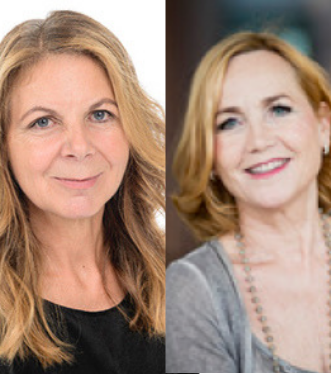As a worldwide community of music educators, the International Society of Music Education (ISME) promotes cultural diversity and intercultural interaction. Its mission is to “respect all musics and all cultures” and “foster global intercultural understanding and cooperation among the world's music educators.” ISME therefore also supports the myriad efforts that its members continue to carry out in order to develop more pluralist and inclusive music teacher education programs. This mission of music teacher education programs becoming intercultural ‘learning institutions’ pertains not only to certain countries, but to all regions and members of ISME, globally.
Several approaches in the professional literature guide our thinking towards intercultural music education pointing out that we all are still on the journey towards better practices. For instance, Schippers and Campbell urge teachers to expand the range of musical genres introduced in classrooms. They advise music teachers to be “aware but not paralysed by concepts such as tradition, authenticity and context” (1). Fear of criticism of cultural ignorance and stylistic inauthenticity can easily hinder teachers from being willing to undertake such an intercultural journey. Critics may forget, however, that the courage to even begin the journey through unknown musical and educational territory might already be a valuable achievement and position of vulnerability.
In their attempt to reach beyond existing musical practices and curricula, Hebert and Saether define music educator’s intercultural competence as the skill to build networks and communities (2). Such skill often also provides musicians and music educators with possibilities to create new forms of making music together. This means that respecting what already exists can be seen as just a starting point, not the end-in-itself. People in networks and communities may co-create values and novel goals. Indeed, co-creating values and goals may be a requirement of staying on a joint road of experimentation where the outcome cannot be predefined.
Some of the intercultural projects at our own institutions (the Malmö Academy of Music in Sweden and the Sibelius Academy in Finland) have proven that there is a strong link between creativity and what is called intercultural competence. One of these projects is the Gambia course at the Malmö Academy which took place in the early 1990s. This organised ‘total immersive experience’ for student music teachers provided a space for students to reflect on different approaches to musical learning in a collaborative African context. A similar example was the master’s level Cambodia course at the Sibelius Academy that involved public concerts in which student teachers performed together with Cambodian children and musicians.
In both of these projects, in addition to the obvious increased understanding of the foreign musical tradition, the main learnings reached beyond musical skills. Both projects shook the taken-for-granted and already learnt certainties of how music should sound, how it should be learnt and what the principles of ‘good music teaching’ are. The students developed skills surviving challenging situations together with others. They learned how to improvise and be creative teachers when their learnt practices, planned recipes and prepared repertoires appeared inappropriate or no longer useful. They learned that it is okay for professional music teachers to step outside their comfort zones. And they became more comfortable when faced with uncertainty.
One of the participating Finnish students verbalised his emerging professional reflexivity when working with uncertainties in an interview at the end of the Cambodia project:
This has been a significant journey. It feels like I’m on the right path, but I’m not taking anything for granted ... or “now I can do this”, but, instead, I am all the time, and increasingly so, interested in learning and understanding more about what it means to be a music teacher and what it is to encounter a human being. ... That is something I want to take with me for the rest of my life and in every encounter—the skill of encountering that [you are] never complete. Every person brings you something new. (3)
Encountering different people with diverse backgrounds during music teacher education does not necessarily require travelling to faraway countries, even if international collaboration is an effective way of shaking certainties. We all either live “in a diaspora” or “among diasporas”, as Zygmunt Bauman writes about contemporary life (4). We may therefore need to develop better awareness of how music teacher education can recognise diversity in our own societies, cities and neighbourhoods. We may need to experiment with how to engage creatively with uncertainties and incompleteness. We may need to develop ethical reflexivity in and through new encounters and learn to create intercultural journeys for our student teachers — and ourselves — in which “every person brings us something new.” Like many other institutions around the world, our own institutions continue on the path to finding the courage to loosen their grip on certainty, and in this way become experimenting ‘learning institutions’.
Several approaches in the professional literature guide our thinking towards intercultural music education pointing out that we all are still on the journey towards better practices. For instance, Schippers and Campbell urge teachers to expand the range of musical genres introduced in classrooms. They advise music teachers to be “aware but not paralysed by concepts such as tradition, authenticity and context” (1). Fear of criticism of cultural ignorance and stylistic inauthenticity can easily hinder teachers from being willing to undertake such an intercultural journey. Critics may forget, however, that the courage to even begin the journey through unknown musical and educational territory might already be a valuable achievement and position of vulnerability.
In their attempt to reach beyond existing musical practices and curricula, Hebert and Saether define music educator’s intercultural competence as the skill to build networks and communities (2). Such skill often also provides musicians and music educators with possibilities to create new forms of making music together. This means that respecting what already exists can be seen as just a starting point, not the end-in-itself. People in networks and communities may co-create values and novel goals. Indeed, co-creating values and goals may be a requirement of staying on a joint road of experimentation where the outcome cannot be predefined.
Some of the intercultural projects at our own institutions (the Malmö Academy of Music in Sweden and the Sibelius Academy in Finland) have proven that there is a strong link between creativity and what is called intercultural competence. One of these projects is the Gambia course at the Malmö Academy which took place in the early 1990s. This organised ‘total immersive experience’ for student music teachers provided a space for students to reflect on different approaches to musical learning in a collaborative African context. A similar example was the master’s level Cambodia course at the Sibelius Academy that involved public concerts in which student teachers performed together with Cambodian children and musicians.
In both of these projects, in addition to the obvious increased understanding of the foreign musical tradition, the main learnings reached beyond musical skills. Both projects shook the taken-for-granted and already learnt certainties of how music should sound, how it should be learnt and what the principles of ‘good music teaching’ are. The students developed skills surviving challenging situations together with others. They learned how to improvise and be creative teachers when their learnt practices, planned recipes and prepared repertoires appeared inappropriate or no longer useful. They learned that it is okay for professional music teachers to step outside their comfort zones. And they became more comfortable when faced with uncertainty.
One of the participating Finnish students verbalised his emerging professional reflexivity when working with uncertainties in an interview at the end of the Cambodia project:
This has been a significant journey. It feels like I’m on the right path, but I’m not taking anything for granted ... or “now I can do this”, but, instead, I am all the time, and increasingly so, interested in learning and understanding more about what it means to be a music teacher and what it is to encounter a human being. ... That is something I want to take with me for the rest of my life and in every encounter—the skill of encountering that [you are] never complete. Every person brings you something new. (3)
Encountering different people with diverse backgrounds during music teacher education does not necessarily require travelling to faraway countries, even if international collaboration is an effective way of shaking certainties. We all either live “in a diaspora” or “among diasporas”, as Zygmunt Bauman writes about contemporary life (4). We may therefore need to develop better awareness of how music teacher education can recognise diversity in our own societies, cities and neighbourhoods. We may need to experiment with how to engage creatively with uncertainties and incompleteness. We may need to develop ethical reflexivity in and through new encounters and learn to create intercultural journeys for our student teachers — and ourselves — in which “every person brings us something new.” Like many other institutions around the world, our own institutions continue on the path to finding the courage to loosen their grip on certainty, and in this way become experimenting ‘learning institutions’.
[1] Schippers, H. & Campbell, P. (2012). Cultural Diversity: Beyond “Songs from Every Land.” The Oxford Handbook of Music Education, vol 1, p 101. Oxford University Press.
[2] Hebert, D. & Sæther, E. (2013). “Please, give me space”: Findings and Implications of the GLOMUS Intercultural Music Camp, Ghana 2011. Music Education Research.. DOI: 10.1080/14613808.2013.851662.
[3] Westerlund, H., Partti, H. & Karlsen, S. (2015). Teaching as improvisational experience: Student music teachers’ reflections on learning during an intercultural project. Research Studies in Music Education37, 1, p. 68. doi: 10.1177/1321103X15590698.
[4] Bauman, Z. (2010). 44 Letters From the Liquid Modern World. Malden: Polity, p. 151, orig. italics.












